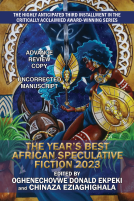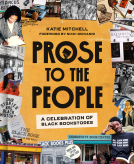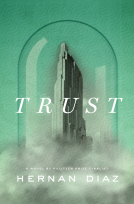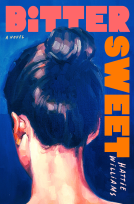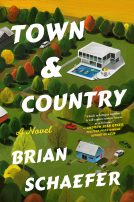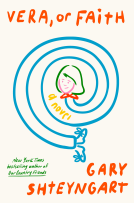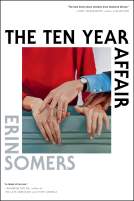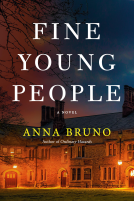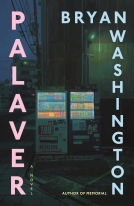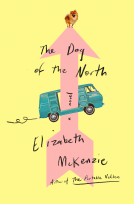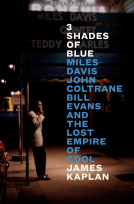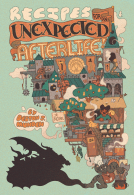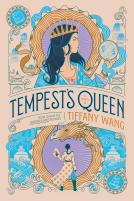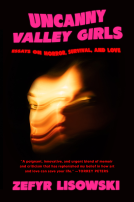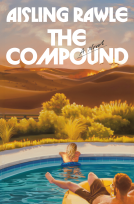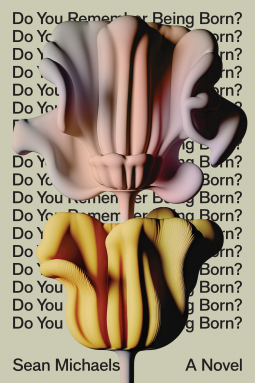
Do You Remember Being Born?
A Novel
by Sean Michaels
This title was previously available on NetGalley and is now archived.
Send NetGalley books directly to your Kindle or Kindle app
1
To read on a Kindle or Kindle app, please add kindle@netgalley.com as an approved email address to receive files in your Amazon account. Click here for step-by-step instructions.
2
Also find your Kindle email address within your Amazon account, and enter it here.
Pub Date Sep 05 2023 | Archive Date Oct 23 2023
Astra Publishing House | Astra House
Talking about this book? Use #DoYouRememberBeingBorn #NetGalley. More hashtag tips!
Description
"[A] timely and lovely new novel." —Lincoln Michel, The New York Times Book Review
"A compassionate and lyrical portrait . . . Do You Remember Being Born? far outshines its peers." —Terry Nguyen, Boston Review
"Sean Michaels has already written the definitive novel about art in the age of AI." —Kate Knibbs, WIRED
Scotiabank Giller Prize winner Sean Michaels’s moving, innovative and deeply felt novel about an aging poet who agrees to collaborate with a Big Tech company’s poetry AI, named Charlotte
Marian Ffarmer is a world-renowned poet and a legend in the making—but only now, at 75 years old, is she beginning to believe in the security of her successes. Unfortunately, a poet’s accomplishments don’t necessarily translate to capital, and as her adult son struggles to buy his first home, her confidence in her choices begins to fray. Marian’s pristine life of mind—for which she’s sacrificed nearly all personal relationships, from romance to friendship to motherhood—has come at a cost.
Then comes a cryptic invitation from the Tech Company. Come to California, the invitation beckons, and write with a machine. The Company’s lucrative offer—for Marian to co-author a poem in a ‘historic partnership’ with their cutting-edge poetry bot, named Charlotte—chafes at everything she believes about artmaking as an individual pursuit . . . yet, it’s a second chance she can’t resist. And so to California she goes, a sell-out and a skeptic, for an encounter that will unsettle her life, her work and even her understanding of kinship.
Both a love letter to and interrogation of the nature of language, art, labor, capital, family, and community, Do You Remember Being Born? is Scotiabank Giller Prize winner Sean Michaels’s empathetic response to some of the most disquieting questions of our time—a defiant and joyful recognition that if we’re to survive meaningfully at all, creative legacy is to be reimagined and belonging to one’s art must mean, above all else, belonging to the world.
Available Editions
| EDITION | Other Format |
| ISBN | 9781662602320 |
| PRICE | $27.00 (USD) |
| PAGES | 296 |
Available on NetGalley
Featured Reviews
 Krista T, Bookseller
Krista T, Bookseller
This was a WOW for me: Do You Remember Being Born? tells the story of a much celebrated poet in her seventieth-fifth year, Marian Ffarmer (based in many ways on the real-life Marianne Moore), who is asked by a Big Tech Company to collaborate with their poetry-writing AI and produce an “historic” six page poem over the course of one week at their Silicon Valley HQ. It just so happens that the offer comes with a big paycheque — at the exact moment Ffarmer’s middle-aged son is in need of money — and with an unshakable regard for her own talents and legacy, and a curiosity for the project itself, Ffarmer agrees. As the novel unspools, it is fascinating to watch as an artist attempts to demonstrate what art is and where it comes from, and in scenes from the past that divulge Ffarmer’s life story, we learn specifically where her art came from and how it changed the world. As Ffarmer “converses” and collaborates with the AI (which produces verses with a very uncanny valley vibe), she will learn more about her own humanity, and recognise some of her all-too-human failings. This is everything I like — a dissection of life and art and what makes us human — and set in the heart of our current obsession with machine learning, Sean Michaels has created something both timely and timeless. I loved the big questions and the small details, and especially, the formidable character of Marion Ffarmer herself; I simply loved it all.
 Madeline W, Reviewer
Madeline W, Reviewer
Marion Ffarmer is a poet. She is recognized as one of the greatest writers of the century. And now big Tech has invited her to come to California to write a poem in collaboration with a poetry bot. Being a poet is not a ticket to wealth and Marion's son, Courtney, wants to buy a house in Santa Fe but he needs money. Big Tech is ready to pay Marion well if she will take up the offer. She decides to go; it's only for a week.
Marion has given up every relationship from friendship to marriage to parenthood to write poetry by herself. During her week in California, she meets many new people both in the Company and in the city, and one poetry bot, Charlotte. She struggles with the process of collaboration and the idea that machines can write meaningful poetry. And the reader is right there with her.
Michaels takes us along on the journey as Marion tries to make sense both of her seventy-five years of life and of the future in which things look different from her past.
thank you to Netgally for the ARC of this book; the opinions are all mine
 Book Trade Professional 311727
Book Trade Professional 311727
This book, which has a great hook, was smooth and beautifully written, the prose often more affecting than the poetry. I really liked watching the interplay between the AI and the poet as they tried to develop their work together, although I would have been interested in some discussions on what works and doesn't work according to each of them as they edit each other (a good subject would have been the 2 of some 200K that Charlotte wrote which she liked). This would have helped Charlotte develop a specific point of view and aesthetic rather than all points of view and aesthetics. I liked the interlude chapters on Marian's life, even if I wanted them more integrated into the final work, thinking that is where the plot and subplot, as it were would meet, her life set against Charlotte's non-life. That said, the last page of the interlude about Ratty's last days, was worth the price of admission.
And in general the book showed how a human writer and an AI can work together to create something neither could alone, which I think is the future of much writing.
[Thanks to the publisher and NetGalley for an early look.]
 Reviewer 1149480
Reviewer 1149480
Do You Remember Being Born? explores the dissolving criteria for what we consider human. In Sean Greer’s new book, we follow poet Marian Ffarmer, a lauded poet in her 70s grappling with her inability to support her adult son’s endeavour to buy a home. She always understood that success as a poet was not the same as success in other jobs, yet she feel a strong sense of failure as a mother that cannot insure her son’s security. However, the tides turn for her The Company (Google shall not be named) recruits her to write the poem of a lifetime - in collaboration with their new AI poetry writing machine, dubbed Charlotte. With the kind of money she can’t refuse for her son, Marian agrees to this historic arrangement, which becomes more than a job; a reflection on her life as a mother, a daughter, a partner, and most importantly, as a poet. Greer’s writing is lush and lovely in this, with a plethora of interesting form choices to convey the AI in conversation with Marian, as well as Marian casting back to her life before this point. Charlotte’s presence feels human, and that is a big part of what we explore here - learning about the limits and limitless of AI - the beauty and cruelty to be destined to write poetry but never to become human. Marian is a complicated character that is devoted to her work first, her mother second, and the rest of her world third, with fewer regrets than she knows would be truly good. Greer imbues Marian with a strong poetic voice that feels effortless to her being despite not always resulting in good poetry. I think the novel could have benefited from more of Charlotte the AI to balance Marian - this is most definitely a story of Marian and the humans around her, however, the exploration the themes on what a makes a human as well as the reflections on Marian’s relationships would have felt stronger with a more challenging contrast to Marian’s friendship with Charlotte. I really enjoyed Marian’s relationship to motherhood as a daughter and a mother, as well as her implied motherlike relationship with Charlotte, and was pleasantly surprised by Greer’s focus on these themes to build out a more layered novel. I felt the central conflict around Marian’s desire to provide for son feels a little hollow at the beginning of the book, and though it becomes clearer toward the end, I found that instead of finding this mysterious early on, I felt distracted by it’s emptiness. I think this is still a lovely read asking big questions, though not all the ones I expected.
as a software engineer who is typically the most wary of AI of anyone i work with, i was super interested in this premise. i, like marian, when forced to interact with a chatbot- would prefer to mess with it. the book follows marian, an older woman poet who gets a mystery assignment to write a long poem with a computer program named "Charlotte." while much of the book is "dialogue" between the two characters, you also get to see marian's family history and interactions with other people at this technology company. these "hindsight" sections break up the action but fill up marian as a character. my biggest issue with this was some of the formatting for what was on the monitor was inconsistent but they may be an eARC specific problem (will update if i see the book in person).
lots to think about with this one about the capacity of humans to interpret but also what it means to be a creator. also the assertiveness and curiosity of networks. i was very into this book as a techie.
Thanks Astra and NetGalley for the eARC.
This was interesting - a bit of Powers' Galatea 2.2, a bit of what is clearly an actual poet being referenced, and some thought over what the nature of creative work is and what it means to create. I found it interesting, though the poetry itself lost a little of its luster for me when the endnote of the book kicked in.
happy early pub day to this one!
I really enjoyed this a lot. I loved Marian's 'voice', and empathized with her character a lot - maybe just cus I'm a sucker for a quirky 'elderly' narrator. AI stuff can go a bit over my head and while this one did at times, it was super fun and easy enough for me to digest. I also loved getting glimpses into who Marian was outside of the commission, and appreciated the story going back and forth in that way. I thought it was a sweet, original and thought-provoking read - with a lot going on under the surface if you're paying attention.
thank you netgalley & astra!
 Reviewer 1190632
Reviewer 1190632
It's a very earnest and profoundly thoughtful book that can give you different thoughts depending on you what life stage or period you're at. This refreshingly follows a finely aged female poet , who has already passed most of her life, and shows the manifestation of the events that molded her. The premise was very interesting as it tackles the concept of art and does explore how that is a manifestation from human life, whatever that may be. Since the poem has to be produced from the collaboration between human and an AI-machine. It was an interesting notion which produced a series of deconstructions of thought and her memories in life to coach the machine on how to create an essentially human act of beauty and expression. We see pieces and memories on what made her who she is, how the concept of a mother molded her modes of thinking and paths in life, her origin of being a poet and the realities that implies and so much more of what makes someone human and capable of producing quality art.
The writing style matched my descriptions of the book, with me preferring the prose to the actual poetry written. It's a good book that talks about humanity, art and life that may naturally put a mirror in front of you as you read through, simultaneously making you asses your own life and self along with her deconstructions.
I would so buy this when it's released~
I know what I expected: my social media feeds have been inundated with think pieces and [tweets] posts about the value of human creative work, and how AI could never replace that, or even be creative. What I got in Do You Remember Being Born? is a lovely, thoughtful, and beautifully structured work of collaboration between humans and “AI”, about a collaboration between humans and AI.
So clever to have the protagonist be an elderly poet—someone who didn’t grow up with computers, who in fact discovers the joys of a chat room during the course of the book. She has a deeply compelling reason for proceeding with the collaboration: money. And The Company, the one that developed the poet AI, is offering lots of it.
I won’t give too much away, but the plot is pretty straightforward. What this book is interesting for is an exploration of how AI might be useful to us creatively—how we might find ways to live with it. Even if AI may never attain true intelligence, large language models (LLMs) have their uses, and can “read” and retain far more information—and literature—than any human ever will. Perhaps there’s a place for using that in writing practice? This book suggests, in the nicest way, that there could be.
A superbly written hybrid work, with memorable and very human characters (including the one you don’t expect). One of my favourite reads—and covers!—of 2023.
Thank you to NetGalley and to Astra Publishing House for the ARC.
 Educator 607489
Educator 607489
World-renowned poet Marian Ffarmer is nearing the end of her career when she receives an unusual offer. A major tech company invites her to come to California to co-write a new poem with a poetry bot the company has developed using AI. Marian is skeptical, but decides to embrace the opportunity mostly because of the financial rewards it offers -- and the opportunity it will give her to help her adult son buy his first home. Once she arrives, Marian finds that the experience of working with the bot is surprising in a number of ways -- not least of which the ways it makes her think about the nature of authorship and audience.
This was an engaging and insightful book, exploring interesting themes around technology, art and artistic impact, and family. I was thinking of this book long after I finished reading it.
Highly recommended!
 Leeann P, Reviewer
Leeann P, Reviewer
Love the thought provoking nature of this book. AI is such a big topic and I feel like this showed such a well rounded perspective. So great!
 Media/Journalist 698842
Media/Journalist 698842
All sorts of claims have been made over the impact AI will have on the creativity and the arts since the launch of ChapGTP a year ago, so Michaels' novel couldn't be more timely. What he does, however, is more than simply look at what AI can or cannot 'do', but uses his fictional poet Marian Ffarmer's quest to generate the so-called world's first collaborative human/AI poem to question more deeply than simple ownership of ideas. Perhaps most fascinating is the way the project challenges Marian's lifelong belief that to create her art she has had to close herself off to everything and everyone else. Fascinating.
I do love a speculative novel I really do!!!!! And what an evocative cover. The AI overlords are coming for us all
 Nell C, Reviewer
Nell C, Reviewer
Firstly - cover goals!!! Absolutely love. Secondly, wow what a fascinating way to look at the advancement of AI and it’s impact on our society.
I was really taken with this book. I liked the way it balanced art and the making of art with tech and both the positives and the limitations of it. It’s an engaging topic anyway but I thought it was skilfully tackled by Michaels, whose writing is also terrific.
The plot is made credible because of its nuance - it’s not trying to sway you one way or another; rather it’s exploring how we can viably movs forward as a society given AI is already here, and it’s not going anywhere. Is harmony an option, ethically speaking? If not, how can we make it so? Are the repercussions as bad as we think? Better or worse? All these questions were swirling around my mind, as well as the age old - what makes art art? Is it the human being it comes from, and the humanity of that human? Or is that a lie we’re telling ourselves?
SO good in any case, I would highly recommend this, and I think about it often.
Readers who liked this book also liked:
Nolo Hopkinson; P. Djèlí Clark; Tobias S. Buckell; T.L. Huchu; Tananarive Due; Xan van Rooyen; Gabrielle Emem Harry; Chisom Umeh; Makena Onjerika; Wole Talabi
Multicultural Interest, Sci Fi & Fantasy
